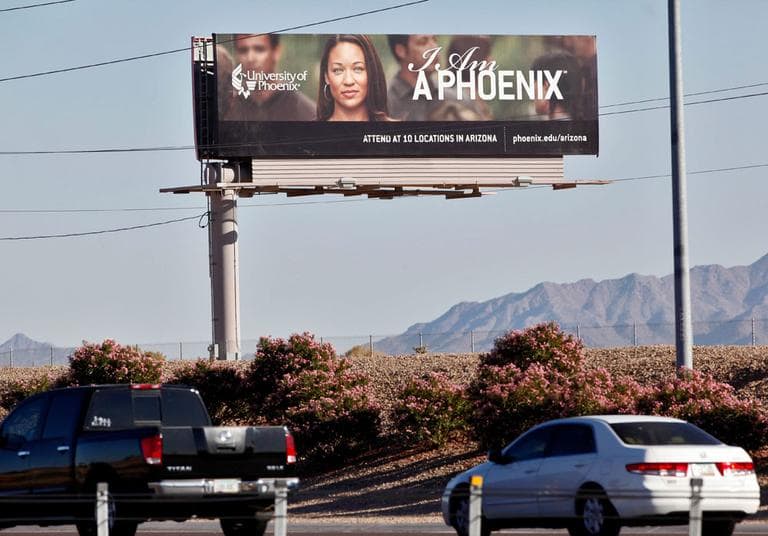Advertisement
Mass. Considers New Regulations For For-Profit Colleges
Resume
"The Wild West of higher education," is how Najeema Holas-Huggins describes the for-profit college industry.
She works with the Bessie Tartt Wilson Initiative for Children and hears from her low-income clients how they are lured by visions of a brighter future and sign up for expensive for-profit schools.
"For-profit schools have the highest rate of student loan defaults," Holas-Huggins said. "There are enough complaints against these schools to fill a phone book. Ultimately they are handing out empty promises for those who need the most help."
One of those who feels like she got an empty promise is Djamilsa Goncalves, a former student at a for-profit school in Massachusetts she didn’t name. Testifying before the Legislature’s Joint Committee on Higher Education recently, Goncalves said she was guaranteed a job in the admissions process. Instead, she’s unemployed and thousands of dollars in debt.
"I haven’t paid my loan because I cannot cover the steep monthly cost," Goncalves said. "I also feel I was conned in receiving an adequate education. Now the loans are in default with late fees and interest fees piling up. My credit is ruined because of these issues."
Goncalves and others say bad credit ruins their chances for housing and jobs. One student told the committee he was promised help in the classroom with his learning disability but never received any. Another said the recruiter forged the admissions test for her son.
To address some of these problems, a proposed bill calls for a commission to study the practices of for-profit colleges. Another would put all of the nearly 400 of those private schools that operate in the state under the Office of Consumer Affairs and Business Regulation, because, the argument goes, they are more like businesses than educational institutions. Last year, the largest for-profit school in the country, The University of Phoenix, reported it made $4.5 billion in revenue.
But Cathy Flaherty, executive director of the Massachusetts Association of Private Career Schools, says a move to consumer protection concerns them.
“We think moving to an agency that is for consumer protection is for business — we are schools, honestly we believe that we should be part of higher education just like our counterparts in all of the other New England states,” Flaherty said.
Most of the for-profit career schools are currently overseen by the Department of Elementary and Secondary Education. Flaherty didn’t comment on accusations of deceptive and high-pressure recruiting tactics.
Problems such as these are only growing, says Deanne Loonin, who gives free legal advice to low-income students in debt at the National Consumer Law Center.
"The scope of the problem, as others have described, is really much more than ever before, both in terms of federal dollars spent in the sector, in terms of profits garnered by the sector, and in terms of the number of people attending these schools," Loonin said.
In 2008 the state auditor estimated that 45,000 Massachusetts students attended for-profit vocational schools, studying everything from real estate to massage to being a medical technician.
This program aired on June 9, 2011.